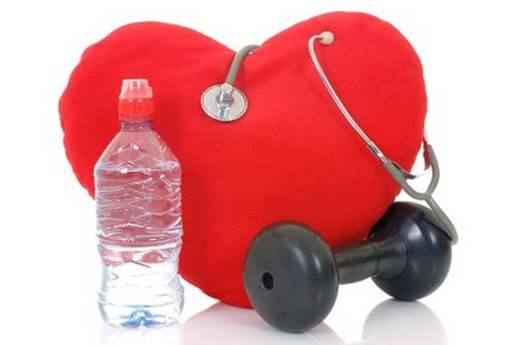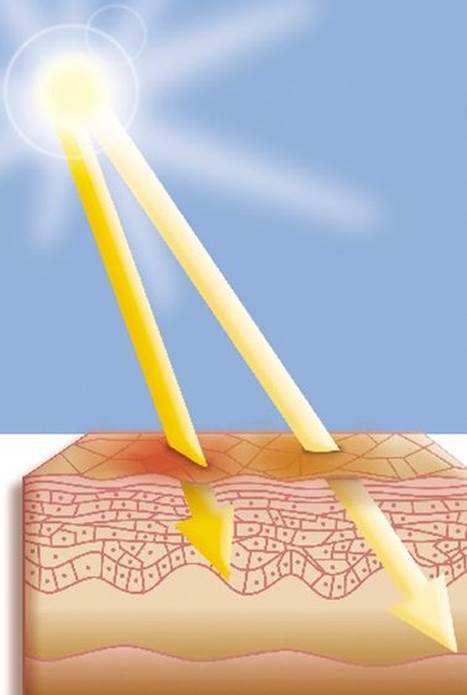It's true that your DNA is a
blueprint for your future health. But taking new scientifically proven steps
can drastically reduce your risk for four diseases that target women. Read on
and take notes
Depression
Although a recent study hinted at there
being a genetic marker for the blues, there's no definitive test that reveals
whether you'll get hit with it or not.

Although
a recent study hinted at there being a genetic marker for the blues, there's no
definitive test that reveals whether you'll get hit with it or not.
Grab a coffee: Women who sipped two cups of coffee a day had a 15% lower risk of
depression, found a recent study. The caffeine is thought to speed up the
release of mood-elevating hormones.
Eat Greek:
Studies show that a Mediterranean diet full of oily fish, olive oil and
avocados, can lower the risk of depression by more than 30%. These foods are
full of omega-3 fatty acids that stabilize moods, says psychologist Dr. Alan D
Keck. Who knew?
Break a sweat: Working out can strengthen your mental health. A study in the
American Journal of Preventative Medicine found that regular exercise could
reduce depression by 47%. Outrun the blues with 30 minutes of jogging five
times a week.
Heart disease
The average woman's risk varies, but if
your parents had early heart disease you are more than twice as likely to also
suffer. Scientists are working on identifying gene markers for heart disease
and, although DNA tests are now on the market, there isn't enough evidence to
show if they are reliable. Or not yet, anyway.

The
average woman's risk varies, but if your parents had early heart disease you
are more than twice as likely to also suffer.
Leave work on time: Risk of heart disease is 67% higher among people who work 11 or
more hours a day, found a recent study. Excessive working hours can heighten
stress, reduce exercise time, increase unhealthy eating. Try sharing that with
the boss.
Crack a smile: Moderate optimists have a lower heart disease risk than glass-half-
empty types, according to Dr. Karina Davidson of US' Columbia University. Go on
then, smile; it's good for you.
Pump it up:
Music increases blood flow and relaxes the cardiovascular system, especially
relaxing tunes with a gentle rhythm. Time to dig out Best Eva Ambient Tunez.
The average woman has a 2% chance of
getting melanoma. But if a parent has had it, the risk doubles. There are
currently no genetic skin cancer tests available. Don't get careless though,
unprotected sun exposure can really raise those odds.
Reduce your risk
Indulge in dessert: Yes, really. Up to two ounces of dark chocolate a day can shield
your skin from oxidative damage caused by UV rays, reducing the risk of skin
cancer, says Dr. David Katz, of Yale University. We'll have a Green and Black's
please.

Up
to two ounces of dark chocolate a day can shield your skin from oxidative
damage caused by UV rays
Read the fine print: EU guidelines mean that as well as an SPF number, sunscreens have a
star rating, too. Look for four stars or more to ensure you're protected
against both UVA and UVB rays.
Drive safely: Car windows don't block burning UVA rays. A recent US study found
women are more likely to get skin cancer on the car window side. Get it on
before you get in.
Breast cancer
Here's the low-down: there is a 12% risk of the average woman getting breast cancer,
which doubles if one parent has had it. Those who inherit the BRCA1 or BRCA2
mutation have a 60% increased risk. If you have a family history of the
disease, ask your doctor for a genetic test, fast.

Those
who inherit the BRCA1 or BRCA2 mutation have a 60% increased risk.
Go virgin:
As few as four drinks a week can raise your risk of breast cancer by 15%. More
than two a day and it rockets up to 55%, says oncologist Dr. Wendy Chen, of the
Dana-Farber Cancer Institute. Stick to fewer than three boozy drinks a week.
Snack smart:
Go nuts! Just two ounces of walnuts a day can reduce your odds by 40%. They're
packed with cancer-fighting antioxidants and vitamin E, says Dr. Elaine
Hardman, of the Marshall University School of Medicine.
Be defensive: Getting enough vitamin D can half the risk of breast cancer, found
an Annals of Epidemiology study. If your levels are below 50mg/ml, take a
supplement. Or move to the Med immediately.